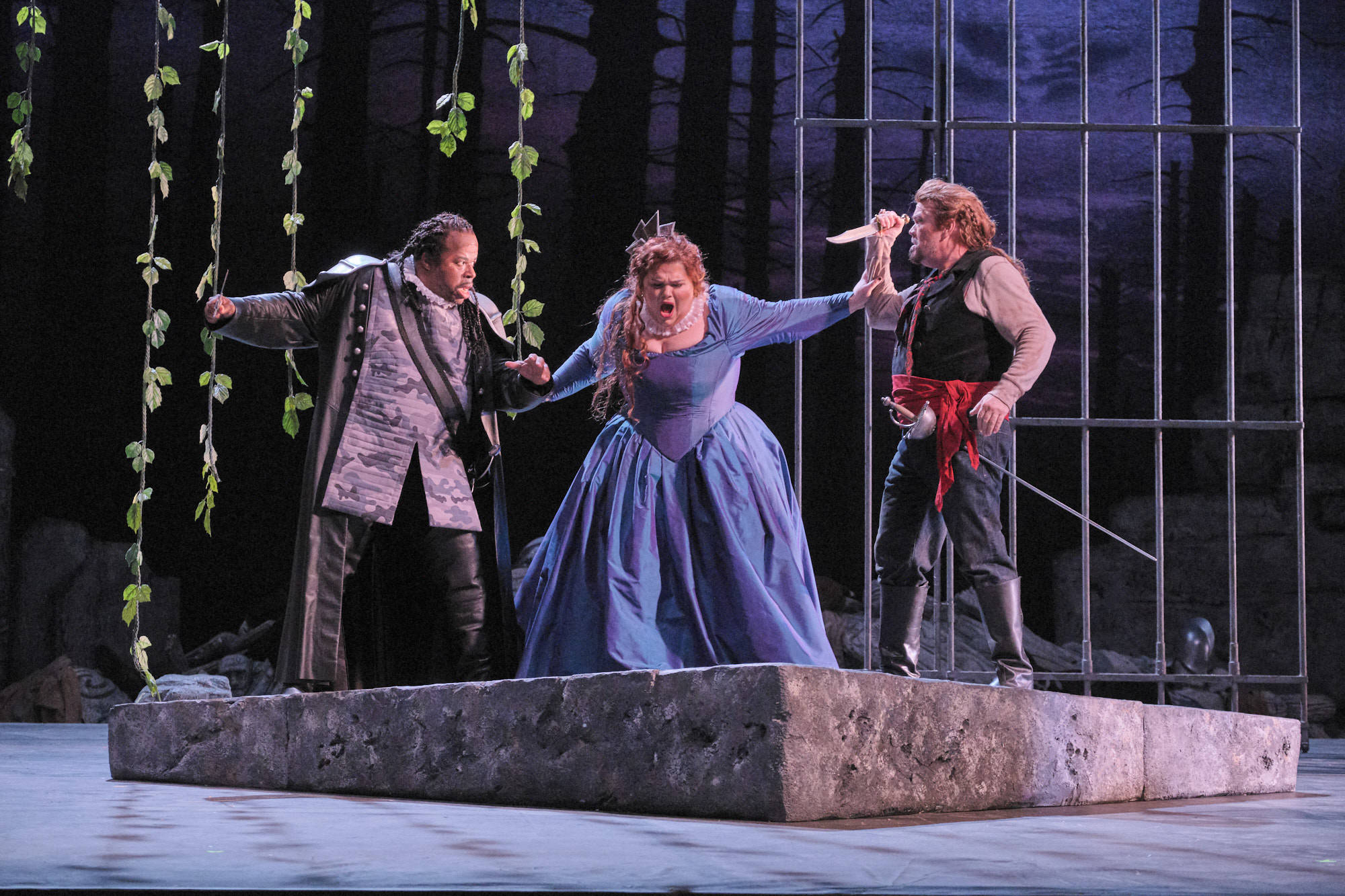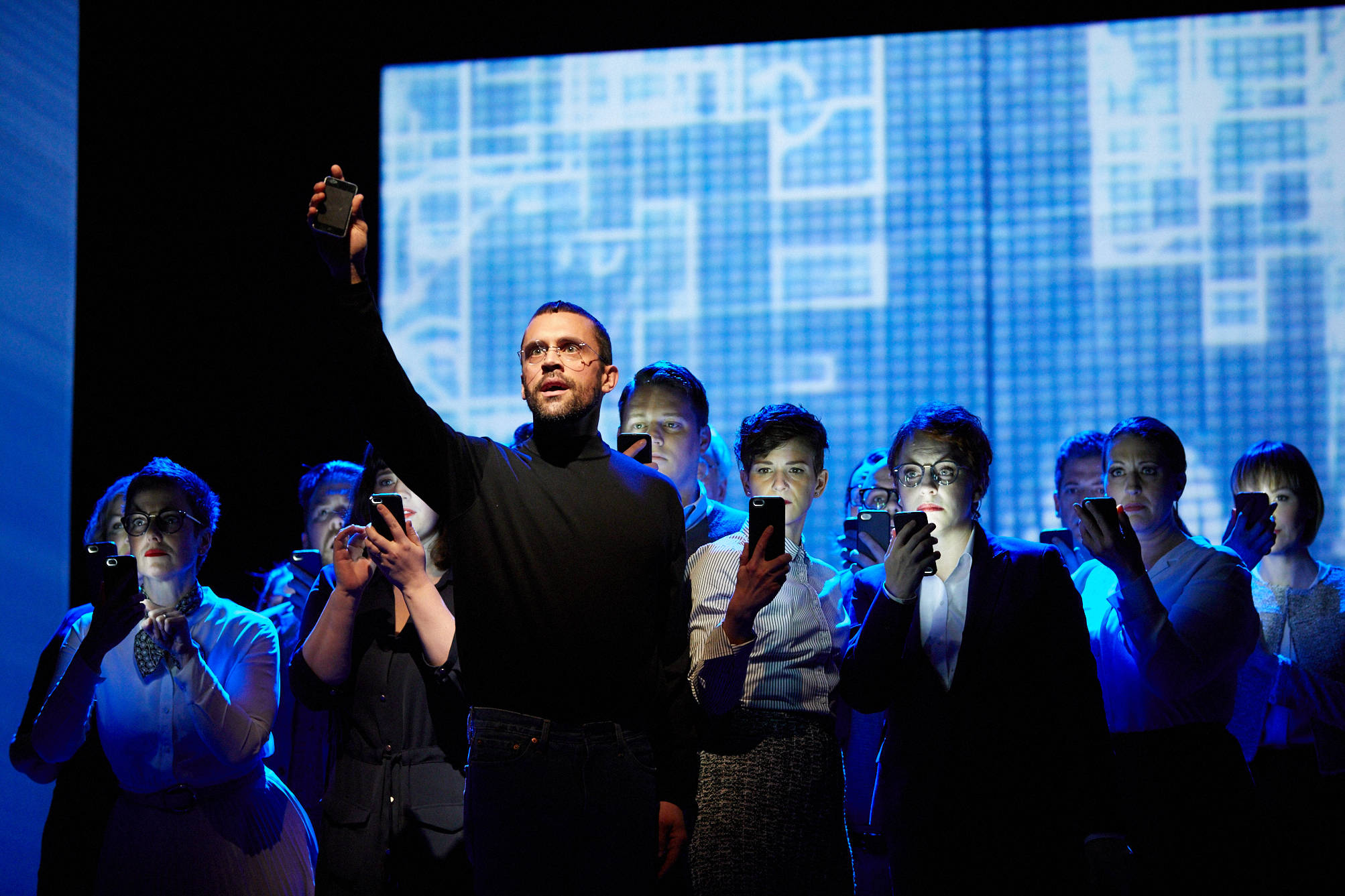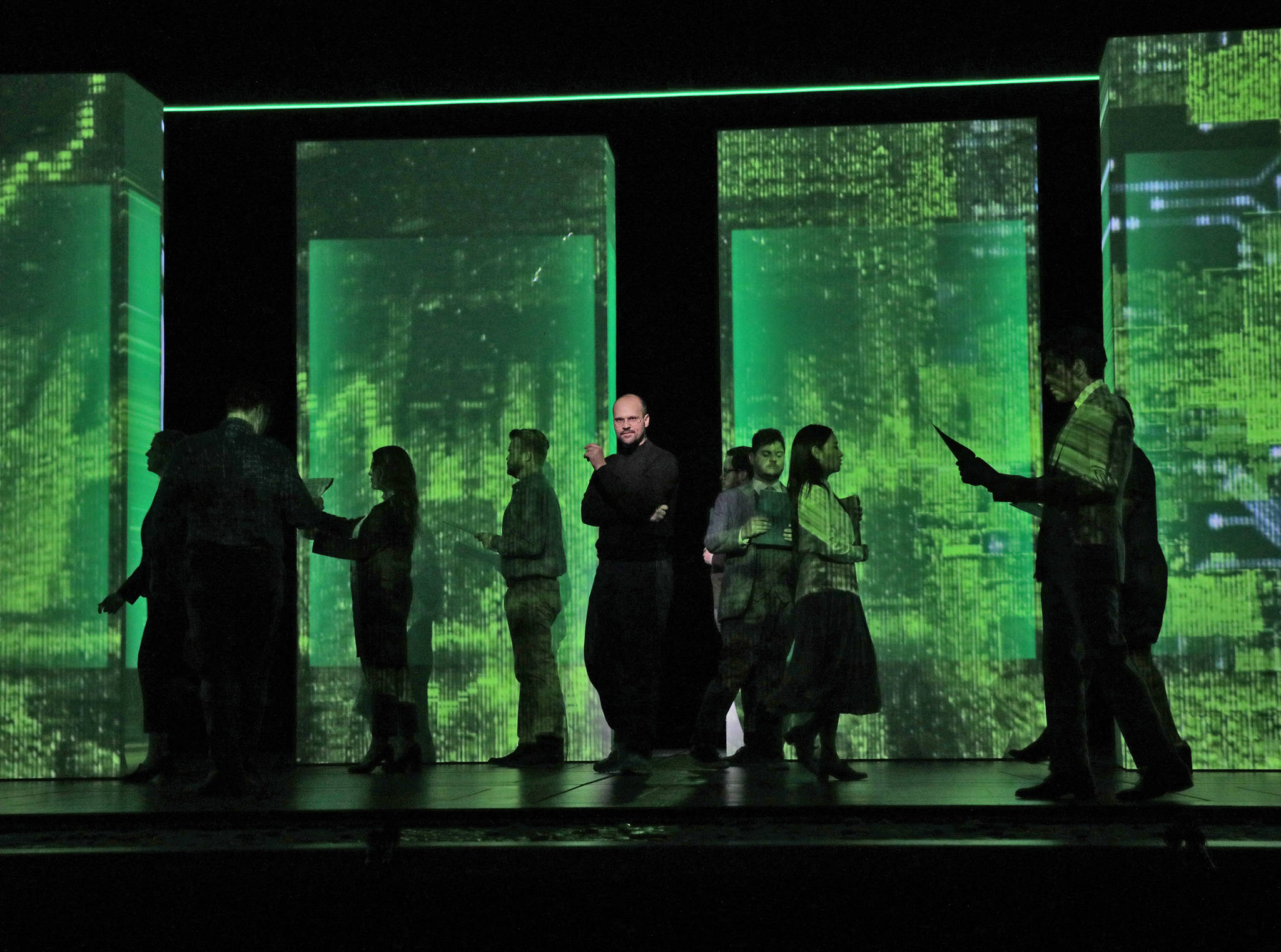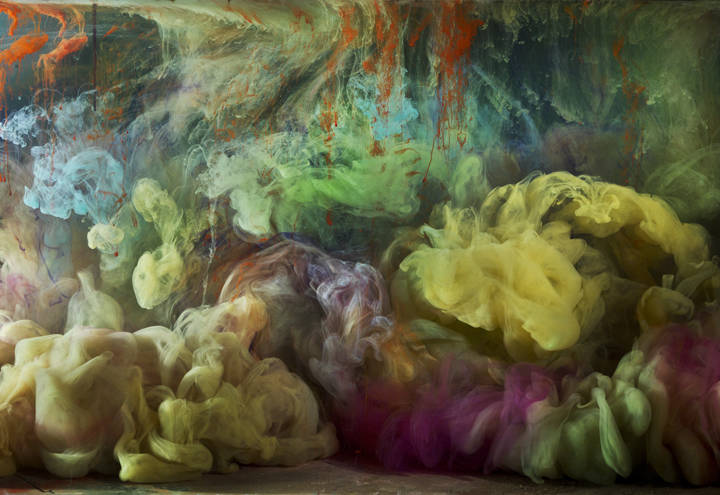So many of the clichés of opera in the popular mind come from Verdi’s 1853 rouser Il trovatore: the improbable plotting built on a soprano/tenor/baritone love triangle; death scenes protracted to allow for just one more vocal flourish; the passions and swords and murders and ball gowns and high Cs and choruses marching on and off and on and off. And after productions in 1997 and 2010 that were more imaginative and more visually striking — but also more confusing and less consistently gripping — Seattle Opera’s current staging (which opened Saturday and runs through January 26) is thoroughly traditional, as if admitting there may be no other way to make the piece work if you want the audience to fully invest in, or even simply follow, what’s going on.
Il trovatore can’t really be summarized; constructed entirely out of exposition, it’s two and a half hours of pure plot. Opening night’s cast featured tenor Arnold Rawls in the title troubadour role, Manrico; part of his vocal arsenal is a traditional Italianate “sob,” which read very effectively as ardency most of the time, but now and then as unsteadiness. He took control of it as the opera went along, and was in solid form for his big moment at the end of Act 3, unleashing the stirring and prolonged high C that every Trovatore fan anticipates. Rawls played well off powerful mezzo-soprano Elena Gabouri as his mother, the vengeance-crazed Azucena; his Manrico was also a bit unhinged, clearly his mother’s son. His rival, romantically and politically, is the Count di Luna, sounding properly villainous, rough and gruff, as played by Lester Lynch. Leah Crocetto sang Leonora, the noblewoman over whom the two clash. Her soprano is uncommonly lovely at low volume—soft and warm, she sounds like cashmere feels—but she can also uncover it to loose easy, airborne high notes. Particularly memorable was her Act 4 aria “D’amor sull’ali rosee,” miraculously dreamy.
Keeping all their interactions clear and impactful in a notoriously complex story was the laudable achievement of stage director Dan Wallace Miller and supertitle writer Jonathan Dean — though I would be curious to ask someone who doesn’t know the opera how well they grasped it all. Pretty well, I imagine. Depicting a couple scenes in shadowplay at stage rear, particularly during Azucena’s narrative aria about why she became vengeance-crazed, worked excellently. What didn’t? Well, certain staging mannerisms go in and out of fashion at Seattle Opera; audiences from the late ’90s likely recall the Trenchcoat Period, when SO — apparently having gotten a sweet deal at Burlington — worked the garment into every show. Clusters of straight-backed chairs had their vogue — not only as props, but as parts of the set itself. Right now we’re in the phase of Throwing People to the Ground; I counted seven instances, four in the first 10 minutes.
Just two more complaints: It seems to be the trend now to cut the repeated sections in the cabalettas, the up-tempo closing movements of solo arias. My guess is the decision is made to speed the drama along (and probably to ease the strain on the singers), but of course opera creates excitement not only through theatrical means but through musical means; truncate the arias and you streamline the story at the expense of the climactic thrills that only a tension-prolonging musical buildup can provide. Also, curiously, there are more action-stopping set changes here than I can recall in any other SO staging, and they’re more obtrusive; the audience’s patience was palpably tried, sitting in silence in the dark again and again. If the changes are unavoidable, the boredom isn’t, and Verdi himself provided a solution: He wrote a suite of ballet music for a French production of Trovatore, back when every opera had to have a ballet interlude. Nobody, really, wants that custom revived, but there are 25 minutes of tasty entr’acte music ready to go.
Il trovatore
Thru January 26 | McCaw Hall | $71–$250 | seattleopera.org








